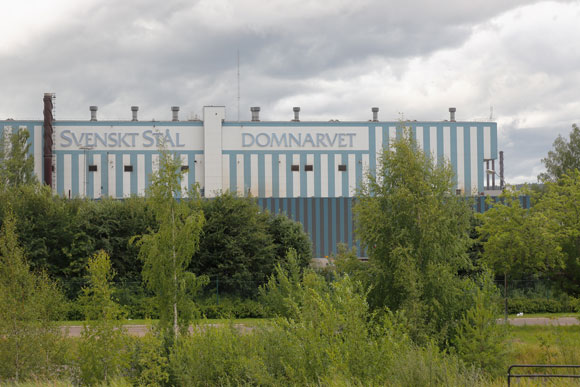SSAB walks away from prospective IJmuiden acquisition

Swedish steelmaker SSAB has ended discussions with India’s Tata Steel over potential acquisition of IJmuiden plant, or Tata Steel Netherlands, the Stockholm-headquartered group stated Jan. 29.
“After deeper analysis and discussions, it became clear that there were limited possibilities to integrate IJmuiden into the SSAB strategic framework,” SSAB said in a statement. “Discussions with Tata Steel have therefore concluded.”
The Swedish company cited its desire to move toward fossil-free steel production as one of the reasons behind its decision.
“The group’s goal is to be the first in the world, in 2026, to supply fossil-free steel to market and to be a fossil-free company by 2045,” SSAB stated.
Are you prepared for your annual steel contract negotiations? Be sure to check out our five best practices.
SSAB walks away from costs
Prospective synergies would not justify necessary costs and investments into IJmuiden for SSAB’s desired transformation, the Swedish group added.
Tata Steel acknowledged SSAB’s withdrawal from interest in IJmuiden. However, Tata said it remains committed to a strategic resolution for its European portfolio.
“Currently, around two third of the business of Tata Steel is based in India with best in class, highly cost competitive assets and strong cash flows and Tata Steel remains committed to undertake significant de-leveraging in FY21 and beyond,” the Indian group said.
Tata Steel’s European assets include IJmuiden and the integrated Port Talbot works, or Tata Steel UK.
SSAB originally announced in November that it was speaking with Tata about acquiring IJmuiden. However, at the time it warned there was no guarantee of any deal.
The Swedes had eyed IJmuiden as a potential acquisition target for about a year prior to that, one analyst at the time noted. The acquisition would have offered potential synergies between the two groups, as they produce flat rolled products.
IJMuiden is in a good condition, despite the financial difficulties the plant faced in 2020, the analyst added.
Tata Steel’s European segment saw a loss in earnings before interest, taxes and depreciation of ₹6.64 billion ($91 million) for its fiscal year ending March 31, 2020, against revenues ₹560 billion ($7.67 billion).
IJmuiden is an integrated plant with two blast furnaces and a convertor shop. The plant can produce 6.5 million metric tons per year of crude steel for casting into slabs and rolling into hot and cold rolled coil. The plant also has a tinning line and can produce hot dipped galvanized and annealed steel.
Revenues impacted
SSAB also reported on Jan. 29 a consolidated loss of SEK490 million ($58.6 million) after taxes for 2020, partly citing lower demand. In 2019, SSAB’s profit reached SEK 1.28 billion ($153 million).
Revenues in 2020 totaled SEK 65.4 billion ($7.82 billion), down 14.5% year on year from SEK 76.5 ($9.15 billion), Swedish group reported.
“The greatest impact of Covid-19 on SSAB in 2020 was from weaker steel markets, therefore we decided to push back the timing of achieving our strategic targets from 2022 to 2023,” SSAB said.
“We introduced several cost savings measurements to counteract the negative effects of weak demand and cut fixed costs by a total of more than SEK 1.6 billion compared with full-year 2019. Market conditions have improved, and we expect good activity during the first quarter of 2021,” the group stated.
Steel production down
Crude steel production for 2020 totaled 7.53 million metric tonnes, down 1.2% from 7.62 million metric tonnes. SSAB attributed the decline to lower demand in the year and planned maintenance,
SSAB’s product assortment includes flat rolled products, tubes and specialty steels.
The group produces crude steel using pig iron from its single blast furnace on site and casts it into slab at its Luleå plant in northern Sweden. That slab then goes to the group’s Börlange plant, about 850 kilometers further south, for rolling into flat products.
The Oxelosünd plant in southern Sweden also produces steel crude steel from a convertor shop and two blast furnaces. Finished products at the site include engineering and tool steels.
Other SSAB assets are in Finland at Raahe and Hämeenlinna, which come from the Swedish group’s 2014 acquisition of Ruukki.
Raahe produces crude steel, also via blast and basic oxygen furnaces. It casts that into slab for rolling into plate and hot rolled coil. The Hämeenlinna plant produces cold rolled coil, and color-coated strip, along with precision tubes and hollow sections.
Further afield, SSAB has assets in Alabama and Iowa. Each one boasts an electric arc furnace and the two combine for 2.4 million metric tons per year capacity. The two plants each produce plate and hot rolled coil.
Sign up today for Gunpowder, MetalMiner’s free, biweekly e-newsletter featuring news, analysis and more.



Leave a Reply